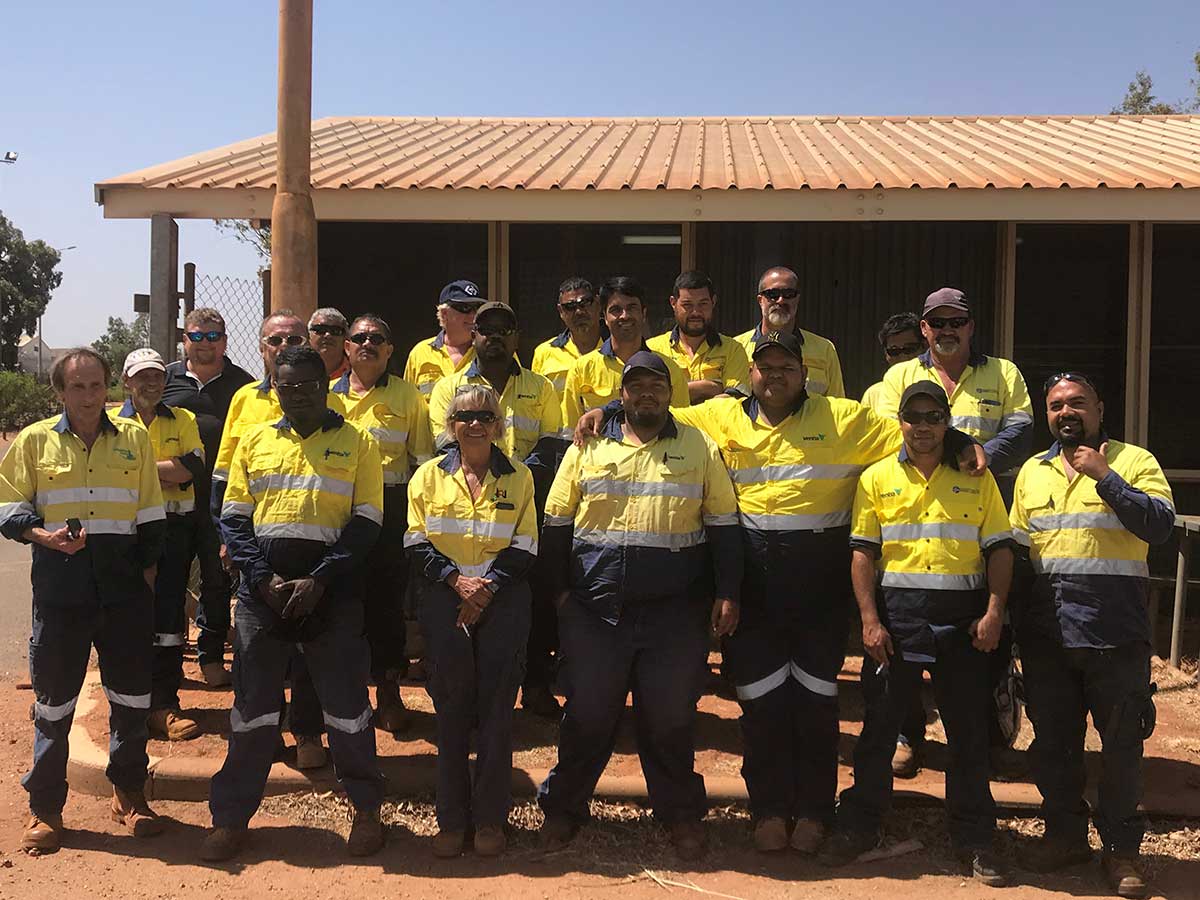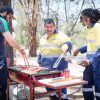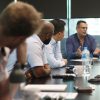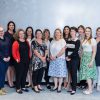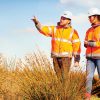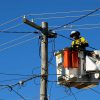We’re committed to strengthening relationships and providing opportunities for Indigenous people and businesses to share in the success of our company.
It is something we strive to do in all the communities in which we operate across Australia and New Zealand. We know we can only make genuine progress if we step up, and with respect and collaboration, proactively create and support social, employment and business opportunities.
RECONCILIATION IN AUSTRALIA
In 2019, we formalised our commitment to Aboriginal and Torres Strait Islander people and communities in Australia with the launch of our first Reconciliation Action Plan (RAP).
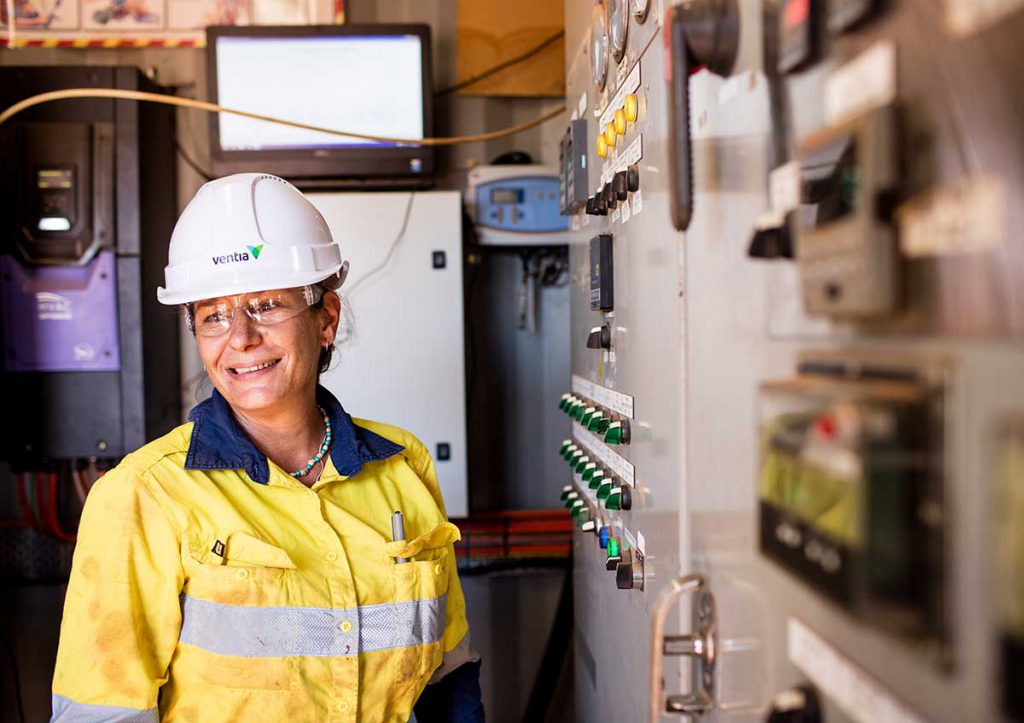 In many ways, the RAP has built upon the good work already undertaken by our Infrastructure Services and Telecommunications businesses on projects across Australia. Projects such as the Cox Peninsula Remediation Project in Darwin Harbour, our road contracts in Western Australia, and the roll out of nbn and fixed wireless networks into remote and rural areas have driven Indigenous participation outcomes by engaging with local Aboriginal and Torres Strait Islander people and communities.
In many ways, the RAP has built upon the good work already undertaken by our Infrastructure Services and Telecommunications businesses on projects across Australia. Projects such as the Cox Peninsula Remediation Project in Darwin Harbour, our road contracts in Western Australia, and the roll out of nbn and fixed wireless networks into remote and rural areas have driven Indigenous participation outcomes by engaging with local Aboriginal and Torres Strait Islander people and communities.
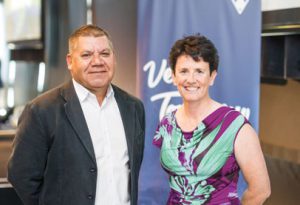
Harry Thorne and Alison Coffey
The RAP was developed by our First Peoples Working Group, chaired by our WA Transport Regional Manager, Alison Coffey. Its members include Aboriginal Business Partner, Harry Thorne, and Group Corporate Communications Manager, Sarah McCarthy.
“Our RAP sets out our commitments and planned actions to strengthen relationships with Aboriginal and Torres Strait Islander peoples, and to increase cultural awareness,” says Alison.
As WA Transport Regional Manager, Alison Coffey, has actively engaged with Indigenous businesses and communities across Western Australia.
“There are vast swathes of this state where people just don’t have the same opportunities as we do in larger cities,” Alison says.
“Most of the people we have met over the last few years just want a chance to provide for their families, to earn a decent wage and to contribute meaningfully to their community.”
For Aboriginal Business Partner, Harry Thorne, cultural awareness is critical to our reconciliation efforts.
“You need to have a strong sense of cultural awareness and the right structures in place, to enable Aboriginal employees and suppliers to be true to their culture and still meet our work commitments,’ he says.
As we progress our RAP commitments, there are a number of new initiatives that are being implemented over the coming months:
Acknowledgement of Country
To show our respect for the traditional custodians of the lands in Australia on which we operate, you’ll start to hear an Acknowledgement of Country at the beginning of formal meetings and other events. This will be delivered by the leader or manager hosting the event.
A Welcome to Country is different in that this is always delivered by Traditional Owners, or Aboriginal and Torres Strait Islander people who have been given permission from Traditional Owners, to welcome visitors to their Country. This can be done through speech, dance, song or ceremony.
Supporting Indigenous Businesses in Australia
We’ve recently extended our membership of Supply Nation to all Ventia businesses. Supply Nation brings together Aboriginal and Torres Strait Islander businesses with corporate and government procurement teams, creating employment and economic benefits to local communities.
Cultural Awareness Training
We’ll be rolling out online cultural awareness training for Australian employees, supported by an Aboriginal and Torres Strait islander-owned and operated training provider e-learning program for Ventia employees. The course covers a range of topics including history, culture and protocols, and practices to ensure a healthy, productive, inclusive workplace for Indigenous staff.
 Our RAP launch was marked with a commissioned artwork by Beverley Egan, a proud Yamatji woman and well-respected Aboriginal artist from the Murchison/ Gascoyne region in Western Australia. It is titled Meeting Place (Coming Together).
Our RAP launch was marked with a commissioned artwork by Beverley Egan, a proud Yamatji woman and well-respected Aboriginal artist from the Murchison/ Gascoyne region in Western Australia. It is titled Meeting Place (Coming Together).
RESPECTING FIRST PEOPLES IN NEW ZEALAND
Alongside our commitment to reconciliation in Australia, we recognise and celebrate the Indigenous heritage and culture of the first peoples of New Zealand where our teams engage with local iwi and communities across the country.
On some New Zealand contracts, we open and close meetings or discussions (huis) with a prayer known as karakia. The karakia is spoken in the Maori language (Te Reo) by all participants together. The karakia is nondenominational and sets the tone for a positive, constructive meeting and closes the hui with an inspirational statement. We’re currently exploring the opportunity to extend the use of karakia across all of our contracts in New Zealand.
In both Australia and New Zealand, we work with local traditional owners, governing bodies and our clients before commencing works in a culturally significant area. Our telecommunications business, for example, works closely with the South-West Aboriginal Land and Sea Council in Western Australia in assessing the cultural heritage significance of prospective telecommunications sites.
Banner image: The RNC Maintenance team in the Pilbara Region
MAKING AN ACKNOWLEDGEMENT OF COUNTRY
There is no set wording for an Acknowledgement of Country, though often a statement may take the following form. What’s most important is to be authentic and respectful.
“I’d like to begin by acknowledging the Traditional Owners of the land on which we meet today. I would also like to pay my respects to Elders past and present.”
